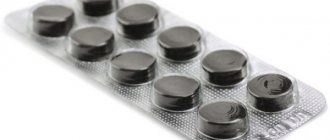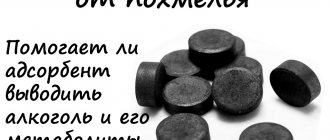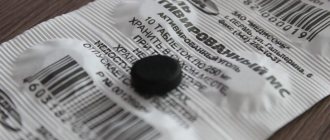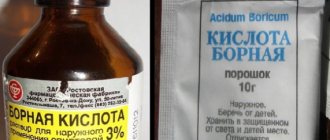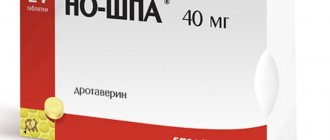Carbon sorbent is a natural substance with a porous structure. It is obtained from natural organic raw materials by charring and further activation at high temperatures. After opening the pores, their specific surface can reach up to 2 thousand square meters. m for each gram of substance. The drug is available in the form of dense black tablets that are easily crushed into powder. They are odorless and release air bubbles with a hiss when they come into contact with moisture.
The mechanism of action of activated carbon is based on its ability to adsorb toxic compounds on its surface due to the formation of hydrogen or intermolecular bonds. In this case, the sorbent particles are not absorbed by the intestinal mucosa, but, together with toxins, are eliminated from the body naturally. Coal is prescribed:
- for various types of intoxication;
- intestinal infections;
- allergies;
- flatulence;
- cold pathologies.
It should be noted that long-term use of the drug is undesirable, since it can adsorb compounds that are beneficial to the body.
Effect of the drug
With regular use of activated carbon, the following processes occur:
- fight against diarrhea;
- providing a detoxification effect;
- adsorption of harmful substances in the body;
- removal of gases, salts of heavy metals;
- absorption of harmful substances appearing on the skin;
- removal of poisons and toxins from the stomach.
Now that we have figured out what kind of medicine this is, we can begin to consider the issue of whether it is permissible for a dog to use activated charcoal.
Sorbent analogues
Activated carbon is the most inexpensive and effective drug. The methods of administration are simple, and the medicine begins to work instantly from the first dose. There are many analogues of it with the only difference being the manufacturer and price. You can also replace it with ordinary “Smecta”. It contains kaolin. It absorbs all toxic elements no worse than coal.
Clay has a softening effect on the walls of the gastrointestinal tract. You should be careful when purchasing this drug for animals. Very often, Smecta analogues contain salts of salicylic acid . In this case, it would be correct to use coal.
In case of severe intoxication, only the sorbent will not help. Then atropine will come to the rescue. It is administered intramuscularly in an amount of 2 ml. Additionally, a diuretic is used. The process of releasing toxins from the body will occur faster. To prevent dehydration, give your dog a rehydron solution.
Is it possible to give coal to a dog?
This sorbent can be freely taken by both people and animals. Sometimes veterinarians prescribe it when a pet experiences any poisoning or stomach and intestinal diseases. The principle of operation will be absolutely the same.
The consequences of eating activated charcoal in a dog will be the same as in humans. That is, staining stool black. There is nothing dangerous in this, since the drug is released in the same color as it was when used.
ATTENTION! If symptoms of poisoning occur, it is recommended to show the animal to a doctor. Of course, you can give your dog activated charcoal right away. But an incorrectly calculated dose can be harmful. If the symptoms do not go away after consuming charcoal, you should immediately contact a veterinarian. This situation may indicate the presence of a serious illness.
Can the drug be given to dogs and in what cases?
The fact that activated carbon has no side effects and does not contain toxic compounds indicates its advantage over other drugs used for poisoning in dogs. It is generally accepted that a dog can go to the toilet about three times throughout the whole day; if it has been noticed that the animal defecates much more often and the stool is very liquid, it means that the dog has most likely been poisoned by something, but this will not be harmful to the animal. labor, because pets often like to look into the trash can where owners throw away spoiled food or taste washing powder.
You need to sound the alarm and immediately run to the veterinarian if your dog’s stool turns greenish or foams. You should also think about poisoning if small amounts of blood appear in the stool. High fever and vomiting also indicate obvious poisoning. If this happens, you should not go to the pharmacy and buy expensive imported drugs; you can use such a cheap drug as activated carbon.
There are also some contraindications for taking activated carbon. Thus, it is forbidden to take the drug if the veterinarian has determined that the pet has begun to have gastric bleeding or an ulcerative lesion of the stomach or intestines. There are also cases when a dog cannot tolerate the components of activated charcoal and it simply will not help it or will cause a severe allergic reaction.
Dosage
To get the maximum effect from the medicine, you need to give activated charcoal to your dog in strict compliance with all norms. Standardly, this is from 5 milligrams to 2 grams of the drug per 1 kilogram of animal weight.
ATTENTION! Only a veterinarian should calculate the dose. Based on the symptoms and duration of the disease, he will indicate the required amount of coal, and will also complement the treatment with other drugs.
Can activated charcoal be given to a dog expecting a litter? The answer is yes. The drug is absolutely harmless, and therefore suitable for use not only by pregnant animals, but also by puppies. Its remains are eliminated from the body within 9 hours, along with other harmful and dangerous substances.
The duration of administration of activated carbon is determined only by a veterinarian. And after all treatment recommendations have been received, you need to immediately begin to implement them.
Activated carbon treatment
As mentioned above, activated carbon can hardly be called a medicine. If we consider the drug outside of complex therapy, its action is limited to the absorption of toxins. When taking only activated carbon, there is no effect on intestinal motility. However, you need to understand that charcoal absorbs everything that is in the liquid, which means it should be given with a break after medications, vitamins, etc.
Of course, activated carbon is the best drug for eliminating mild food poisoning
. If we are talking about poisoning by poisons, gases and other chemicals, coal alone will not be enough. When providing emergency care, if the source of poisoning is unknown, activated carbon is combined with Enterosgel and Atoxil.
Note! At least 40 minutes must pass between taking the sorbent and medications, otherwise activated carbon will reduce the therapeutic effect.
The instructions indicate that charcoal has no contraindications or side effects. If we take this point literally, it turns out that charcoal should and can be given at the slightest indigestion. However, this is not entirely true. Diarrhea is rarely an independent illness, since it is one of the components of the body cleansing process. Most often, diarrhea, like diarrhea, are symptoms of a more serious illness, for example, poisoning.
If diarrhea is caused by stress, charcoal is useless. The use of the drug will complicate the diagnosis if diarrhea is a symptom of gastritis, stomach ulcers, intoxication due to illness or other ailment. Simply put, treating a dog with charcoal without knowing the cause of diarrhea is always risky. You are guaranteed to eliminate the symptoms and your pet will visually feel better, but in general the situation will only get worse.
When used excessively for prevention,
charcoal can cause constipation
. We said above that the drug absorbs water. If too much charcoal is taken (or tablets are used too often), the stool becomes too dry, which leads to compaction and blockage of the intestines. In addition, constipation with an excessive dose of activated carbon is dangerous due to damage to the intestinal walls.
If a dog (especially a puppy) becomes constipated due to charcoal intake, you need to give your pet some oil and provide him with plenty of fluids. Frequent and strong straining when the intestines are partially blocked by dry feces can lead to rectal prolapse.
How to give activated charcoal to a dog?
There are several ways to administer medicine to animals. They depend on the size and age of the pet. As an example, the following cases can be noted.
For puppies. At an early age, it is recommended to administer a tablet dissolved in water. Next, put the end of the syringe into your mouth (without a needle, of course), and pour the liquid into the mouth. This must be done slowly so that the baby does not choke.
Adults. Activated charcoal can be given to older dogs in tablets. She is quite capable of swallowing them on her own. When administering the medicine in this way, it is recommended to pour a little water from the syringe. To make it easier to swallow.
If your pet vomits, you just need to repeat the procedure. However, the best and most painless way is to dilute the tablets in water until they form a porridge.
How to recognize the disease?
Breeders should know not only how to give activated charcoal to a dog, but also in case of any manifestations they should refuse self-treatment and consult a specialist. Diarrhea, signaling dangerous pathologies, is accompanied by the following additional symptoms:
- increased salivation;
- dyspeptic disorders;
- increased heart rate;
- increase in temperature;
- convulsions;
- malaise, apathy and lethargy;
- loss of appetite;
- losing weight.
If such symptoms occur, you should take your pet to a veterinarian. After the examination, he will tell you whether activated charcoal can be given to the dog. He will also select other medications that will help stabilize the animal’s condition.
When should you give the medicine?
We have already received an answer to the question: is it possible to give activated charcoal to a dog? Therefore, it is worth considering the causes and symptoms that require the use of this medicine.
Actually, the conditions of admission (types of disorders) in dogs are the same as in people. They were listed earlier. Now the signs of severe poisoning in a pet will be examined.
ATTENTION! If a dog experiences acute or prolonged intoxication, the use of activated carbon is useless. This is explained by its operating principle. The drug absorbs harmful substances and fluids in the body and is eliminated along with them. Without getting into the blood.
Pregnant women and puppies
Due to its harmlessness, this is one of the best medicines for animals expecting puppies and for babies. The breed of the dog doesn't really matter. Before taking, you should calculate the dose by weight
- about 10 kg 1 tablet. You can give a little more. Within 8-9 hours, the coal is excreted in the feces. Along with it, all dangerous substances are removed from the stomach.
Poisoning is often accompanied by dehydration. For pregnant dogs and puppies, this can be fatal. Their body is the most vulnerable and weakened due to certain conditions. It is necessary to choose the right diet and water your pets more often.
You can make a rehydron solution. It contains all the necessary substances that will help maintain water-salt balance in the pet’s body.
How to give medicine at the first signs of poisoning?
If the first symptoms of poisoning appear, it is necessary to give the dog activated charcoal as soon as possible. But before that, it is important to do the following:
- Induce vomiting. To do this, you need to place your finger in the animal's mouth. Next, pressure is applied to the root of the tongue (not strong).
- Organize gastric lavage. Dilute a liter of potassium permanganate solution and pour it into your mouth. This will have to be done by force, since the animal will not want to eat or drink anything. You can use a syringe without a needle or a syringe.
ATTENTION! Before giving your dog activated charcoal, make sure that more than 40 minutes have passed since taking the main medication. Otherwise, the sorbent will simply reduce its level of action.
Dosage, route and regimen
Activated charcoal is given to a dog with diarrhea at the rate of 1 tablet per 10 kg of weight. The frequency and duration of use of the composition is prescribed by the doctor, taking into account the cause of the pathology.
You can give the medicine in the following ways.
- Place the tablet on the root of the tongue (you need to wait until the dog swallows it).
- Crush the tablet to a powder and mix with liquid food.
- Grind the tablet and mix it with water (you need to pour it into the animal’s mouth).
- Activated charcoal is administered to a puppy for diarrhea using a syringe without a needle (the tablet is crushed, then the powder is combined with water).
Results
The use of activated charcoal when treating a pet is standard practice in veterinary medicine. However, the dosage of this drug must be regulated by the doctor himself. Otherwise, problems with the body may arise that can lead to various diseases.
Carbon sorbent is a natural substance with a porous structure. It is obtained from natural organic raw materials by charring and further activation at high temperatures. After opening the pores, their specific surface can reach up to 2 thousand square meters. m for each gram of substance. The drug is available in the form of dense black tablets that are easily crushed into powder. They are odorless and release air bubbles with a hiss when they come into contact with moisture.
The mechanism of action of activated carbon is based on its ability to adsorb toxic compounds on its surface due to the formation of hydrogen or intermolecular bonds. In this case, the sorbent particles are not absorbed by the intestinal mucosa, but, together with toxins, are eliminated from the body naturally. Coal is prescribed:
- for various types of intoxication;
- intestinal infections;
- allergies;
- flatulence;
- cold pathologies.
It should be noted that long-term use of the drug is undesirable, since it can adsorb compounds that are beneficial to the body.
What is this?
The sorbent can also be used for animals, in particular for dogs. The absence of effects after administration and the absence of compounds harmful to the dog’s body in the drug promotes rapid recovery. The active substances of coal are removed quickly enough and without consequences.
The animal has black stool. Together with them, all toxic elements that have not had time to be absorbed into the blood are removed. This shouldn't be scary. But it’s better to play it safe by visiting a veterinarian, whose authority and power is to promptly and promptly make the correct diagnosis and prescribe proper treatment.
Dogs are prescribed in such cases:
- all kinds of digestive disorders (diarrhea, high acidity, flatulence);
- liver disease;
- salmonellosis;
- allergic rashes;
- poisoning;
- intoxication.
an absorbent preparation is strictly prohibited for :
- opened bleeding in the stomach;
- peptic ulcer;
- immunity to the drug itself.
Can be used for dogs
Is it possible to give activated charcoal to a dog? The sorbent can also be used for animals, since it does not contain components that can harm their body. Veterinarians themselves often prescribe charcoal to dogs:
- for various intoxications;
- liver diseases;
- digestive disorders;
- infectious diseases.
According to veterinarians, the most common reason for visits to clinics is due to poisoning. Coal should be used when the first symptoms of intoxication appear. It effectively adsorbs toxins and removes them from the body. But sometimes the observed signs may indicate a serious illness. You should not give activated charcoal to your dog if:
- gastric bleeding began;
- there is a peptic ulcer;
- an allergic reaction to the components of the drug is possible.
- Use of sorbent for diarrhea
In some situations, poisoning may be accompanied by dehydration, which makes the use of carbon sorbent useless. Intestinal upset occurs and stool is disrupted. If you are not sure whether your dog can use activated charcoal, then you should not use it. It is better to show your pet to a veterinarian.
Diarrhea can be caused not only by poisoning, but also by other reasons:
- unhealthy diet;
- large amounts of fatty foods;
- helminthic infestation;
- entry of small foreign objects into the intestines;
- sudden change in diet;
- lack of essential microelements.
Contraindications for use
This sorbent does not cause serious harm to the body. However, there are cases in which it is not recommended to use such a medicine.
- Constipation;
- Bleeding in the stomach or intestines;
- Ulcerative diseases;
- Compound intolerance;
If the dog does not have such phenomena, then you can safely use activated carbon to get rid of diseases.
If constipation occurs from taking activated carbon, it is recommended to give the dog a little oil and drink plenty of water.
Activated charcoal can be given to dogs in many cases. When used correctly, the medication will help you quickly get rid of unpleasant sensations and remove toxic substances from the body. However, it is recommended to remember that if the animal’s diarrhea does not go away, then a visit to the veterinary clinic is mandatory. Timely assistance will save the dog's life.
Causes of pet distress
If a dog has loose stools, the origin of this disease may lie in the following:
- improper diet or consumption of missing foods;
- a sharp change in the usual menu (transition from dry rations to full meals and vice versa);
- foreign objects entering the intestines that cause imbalance;
- worms and chemical poisoning;
- infectious diseases;
- allergic reactions of the body;
- lack of microelements and vitamins;
- mechanical damage to the gastrointestinal tract organs, improper operation;
- oncology.
If a pet’s disorder is associated with the presence of one of these conditions, then appropriate measures must be urgently taken to eliminate such disorders. Otherwise, constant bowel movements can cause dehydration and death of the dog.
Indications for prescribing the drug
Black coal tablets are used in the following cases:
- loose stools, dyspepsia;
- bloating;
- increased stomach acidity;
- chronic severe kidney failure;
- liver cirrhosis, viral and chronic hepatitis;
- atopic dermatitis, bronchial diseases (asthma);
- household, chemical poisoning;
- in preparation for x-rays;
- in case of poisoning with medications.
Contraindications for use
Activated carbon is not recommended for use under certain circumstances.:
- for stomach bleeding, gastrointestinal ulcers;
- in case of allergic reactions to the substance.
Before giving your dog an absorbent, you should first consult with a veterinarian, because symptoms of banal poisoning may indicate the presence of more dangerous diseases.
Signs of severe poisoning
If you should think about using an absorbent if a devoted friend exhibits similar symptoms:
- severe vomiting with bile, foam, bloody admixture;
- increased salivation;
- disorder;
- change in urine color;
- rapid heartbeat, shortness of breath;
- decrease/increase in normal temperature;
- convulsions and sudden reaction to light;
- loss of consciousness;
- change in the shade of the nasal mucous membranes and dryness.
The main sign of poisoning is that all discharge has an atypical, unpleasant, pungent odor . But whether activated charcoal is allowed for dogs or not, only a veterinarian can answer, but in emergency cases it is necessary.
What to do if your pet is poisoned
It takes minutes for the first time to help a pet with disorders . Therefore, the first thing to do is detoxify: stop the spread of toxic substances and their accumulation.
Before giving the absorbent, you need to carry out a whole range of procedures, namely:
- Induce a gag reflex by placing a finger deep into the oral cavity, then lightly press on the root of the tongue (you can use a small amount of salt).
- Rinse the dog's stomach: a light solution of potassium permanganate (liter) and forcefully pour it onto the pet. Here you can use a plastic bottle - place the standard neck in the corner of the mouth and pour in the prepared solution to create vomiting.
- Now you can give your dog “black coal” - grind several tablets (depending on weight) in 0.5 glass of water. After this, you cannot induce vomiting. The procedure is repeated several times.
If in an emergency there is no activated carbon in the first aid kit, then chicken eggs will come to the rescue: whites (1-3 pieces) are able to collect and remove toxic substances from the body, but, of course, they are not so effective.
Cleansing enemas made from a weak solution of potassium permanganate will help flush the intestines during diarrhea. If the causes of the disorder and vomiting in a dog have not been established, it is better not to use laxatives.
If your pet is poisoned, it is better to take it to the veterinarian as soon as possible or call a doctor at home. Moreover, it is not recommended to limit treatment to the procedures listed above, despite the improvements.
In an emergency, activated carbon alone is not enough, since 2 ml of the active substance - atropine - must be injected subcutaneously as soon as possible to prevent the absorption of toxic substances, as well as a diuretic drug - Lasix, as shown in the instructions. At the same time, the dog is given a light solution of rehydron: ½ glass per hour.
The disorder is treatable
If a dog suffers from diarrhea, the first question that arises for the owner is what to do and how to eliminate the disorder without resorting to radical methods. To begin with, it is worth determining the duration of the violation: chronic, short-term or long-term. Then identify the cause of the pathology, which only a veterinarian can accurately determine. Short-term attacks can be eliminated at home using activated carbon .
At the first signs of a gastrointestinal tract disorder - vomiting, diarrhea, you need to urgently provide first aid to your pet. Activated carbon is an excellent absorbent that will help in an emergency. But only a veterinarian can prescribe the main treatment.




